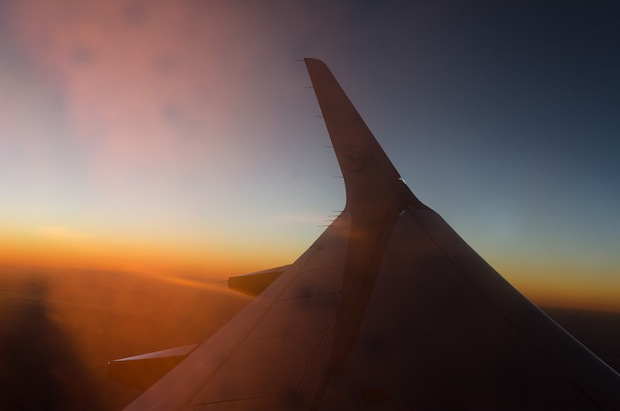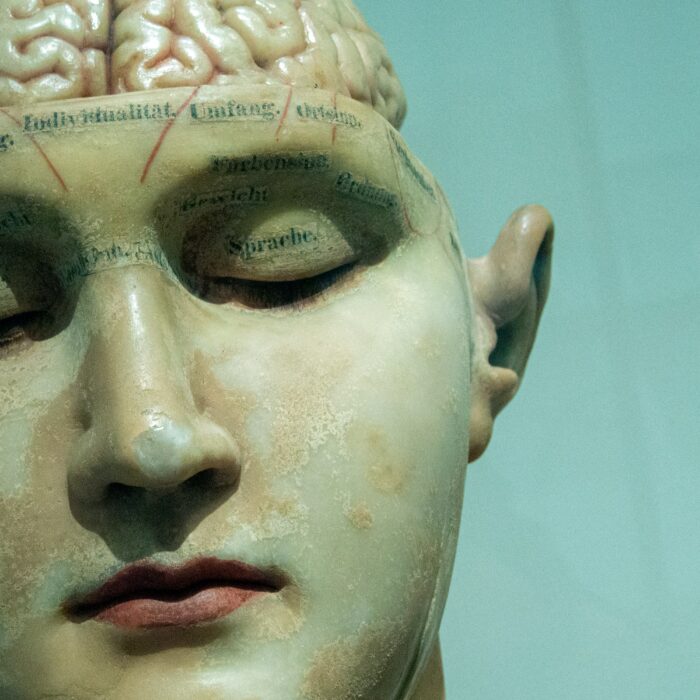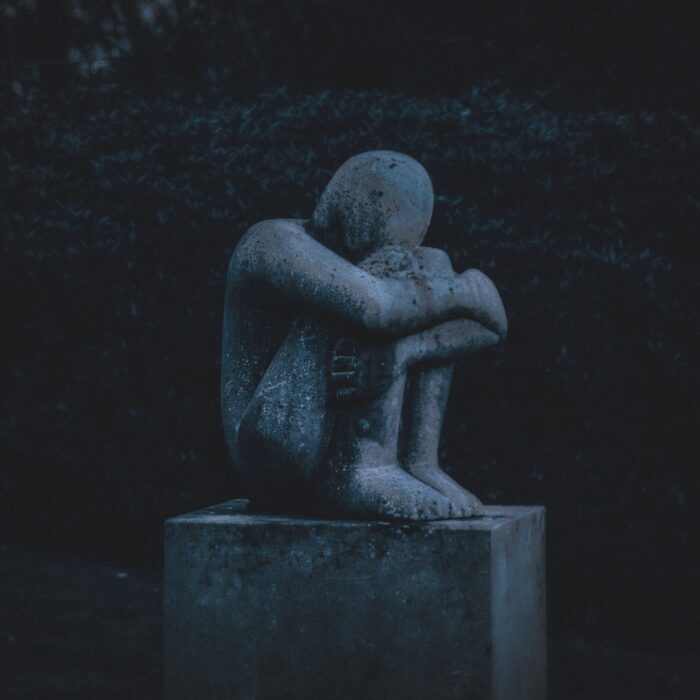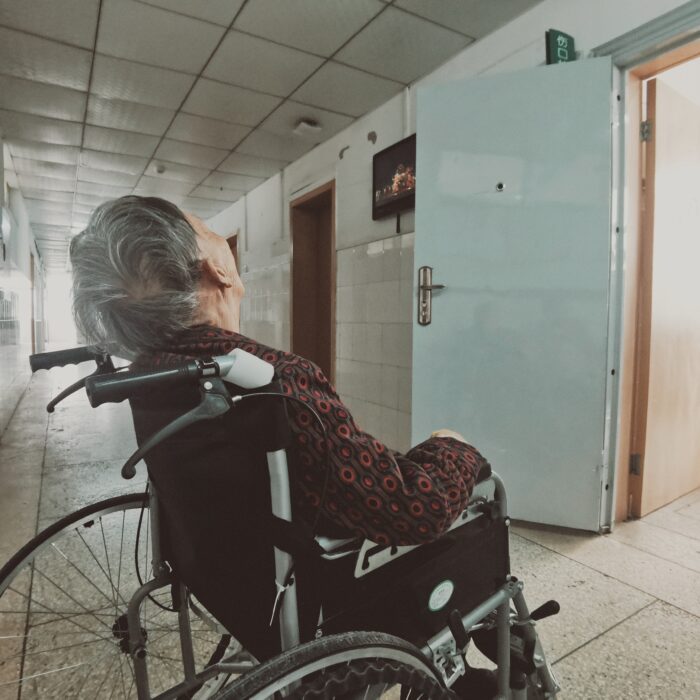You have no items in your cart. Want to get some nice things?
Go shopping
“Radio Gandhi are going to Cuba and so am I.”
I am slumped into mum’s sofa watching a programme play out on the television. Couples cooking for other couples in their own homes. The living room curtains are part drawn to block out the low evening sun and sharpen the images on screen One of the woman has just disrespected another’s vegetable moussaka and the tension is rising. My mother’s words catch my ears like sand trickling through fingers.
“What did you say? You are going where?”
It is Tuesday evening, and the one night of the week my husband Deepak stays over in London for late afternoon and early morning meetings. It doesn’t bother me, Mum and I have a routine. I go to her place straight from work and she makes me paratha just the way I like them, large, square and stuffed full of mashed potatoes. I have made my way through two this evening along with double helpings of butter and yogurt. The paratha sit like stones at the top of my stomach, and I reach behind to lower the zip of my skirt.
“Cuba…I am going to Cuba,” Mum says, clearing the dining table.
Mum has my full attention now as I twist my head to look at her. She’s picking bits of potato off the table with the tips of her fingers, flicking them onto a dirty plate before wiping the surface with a damp cloth.
“Who are you going to Cuba with?” I ask.
“I just told you, Radio Gandhi,” mum answers before disappearing into the kitchen. “They are organising a trip,” she shouts, her voice part muffled by the hum of the cooker hood. “They took a group last year, but the places went like hot potatoes. The boy who organises the trip told me, “Auntie Ji, next time your name will be top of the list.”
I point the remote control at the television, and press the minus button several times with the pad of my thumb until I can no longer hear the barbed comments the couples are throwing at each other. Although the whites of their eyes and the hard set of their faces speak of a toxic atmosphere.
Then placing the remote onto the coffee table I follow mum into the kitchen. She is standing at the sink rinsing out a saucepan. I lean against the doorway and watch as she cups a hand under the running tap, and throws water at the pan before wiping its inside with the flat of her palm. Her yellow gold bangle thunking against its rim. She places the pan on the drainer and wrings out the purple chequered dishcloth, twisting her hands in opposite directions until it’s free of excess water. “When is the trip?” I ask.
“Easter time I think.” Mum replies as she moves the dishcloth around the sink, “but I don’t care. I will go whenever the trip is. I am retired remember? Do you want some rasmalai? I made it today.”
“Yes, go on then. It’s a long way, Cuba.” I volunteer. “Also that part of the world has hurricanes mum, so you can’t just go in any season.”
“I came to this country when I was eighteen years old to marry a man whose photo I hadn’t even seen. Do you not think I can handle a hurricane or two?”
I sigh, this is mum’s answer to anything I try and caution her against.
When Steve, her neighbour, took longer than agreed to trim the tops of his trees, blocking the light into mum’s living room, I tried to stop her going over to see to him.
“Deepak and I will go at the weekend mum. We don’t want to get into a fight with him.” ‘Fight…fight why would I get into a fight? I came to this country when I was eighteen years old to live with your father’s family. They were strangers to me, and I learnt the art of diplomacy without getting into fights. An Indian daughter-in-law of my generation is a diplomat of the highest kind.”
Mum had said slipping on her shoes and throwing a cardigan over her shoulders before leaving the house with purpose. I don’t know what was said, but the following weekend Steve spent the best part of Saturday afternoon trimming the trees to a length mum was happy with.
“Get some details of the trip.” I say. “Deepak and I will take a look.”
“I spoke to the young boy at Radio Gandhi today. He told me as soon as the details are printed I will be the first to receive them.”
A week later during my next paratha visit mum hands me an A5 size brown Manilla envelope along with her cheque book.
“What’s this?” I ask, turning the envelope over in my hand, mum’s name and address written on its front in neat black capitals. A stamp bearing the Queens head stuck at an angle in the top right hand corner.
“The Cuba details.”
I’ve been so engrossed with work this last week, the Cuba trip had slipped my mind.
“Write me a cheque for the deposit please,” mum says in a clipped voice.
Since my dad died five years ago of a heart attack mum has become more independent. She can change the fuse in a plug, check the air pressure of tyres, discuss brake pads and engine oil with the man at the garage, but having never been comfortable with written English, she will not write a cheque.
“I’ll take the envelope with me. Deepak and I can take a look over the next few days.”
“No, I am not going to miss out again. You can read the details here after we have eaten, and then you write me the cheque.” Mum says pointing a finger at the envelope, “I am 72 years old and God may not give me many more years. I have always wanted to go to Cuba.”
“Have you? I didn’t know that.”
“Do I have to tell you everything? Am I not allowed to have private thoughts and wishes?”
“I’m not mum. You always want to know everything I do and think.” Mum ignores my comment, choosing instead to wave her arm in the air as she heads towards the kitchen.
“Get the plates from the sideboard please. I will make the parathas now.” Soon the smokey smell of cooking on the tawa reaches my nostrils and my stomach growls with impatience.
Settling at the table, Mum reaches for the plastic chapatti container. She lifts its lid, takes out two parathas, and lays them neatly onto my plate. Then she ladles yogurt from a tin bowl into each of the two glass dishes I’ve taken from the sideboard.
“Eat them while they are hot,” she says, putting a paratha on her own plate before spooning a curve of mango chutney onto its middle. For a while we eat in silence, breaking off pieces of paratha with our fingers and dipping them into yogurt, butter or chutney. Then with a heavy sigh mum cuts into the quiet, “You know, your father and I talked about going on holidays once we retired. He spent his nights working the foundries and his days sleeping. Our lives passed by always waiting to be together.” Mum wipes a tear from her eye with the back of her hand.
“Maybe you could go somewhere nearer, Paris or Barcelona? I’ll go with you. Cuba is a long flight.”
Mum opens her mouth to speak. I put down my paratha and raise my hand to her.
“No, please don’t give me the boat story…you are not eighteen anymore. The journey will take it out of you.”
“I have travelled long haul flight many times to India,” Mum says. “We went only last year remember?”
“Yes, but Deepak and I were with you.”
“What good were you to me? I had to wipe the bottoms of both you and your husband when you became ill. Eating the street food I told you not to eat. Acting like Westerners.”
“We are Westerners mum, Deepak and I have lived our whole lives in England.” I give out a sigh. “Okay mum, once we’ve cleared up we’ll look at the details.”
With the table tidied and my stomach feeling like I’ve swallowed a couple of rocks I drop onto the sofa and pull the itinerary from its envelope, unfolding the three pages held fast by a single staple in the top left corner.
Mum puts a tray holding two mugs of tea and a plate of bright yellow ladoos onto the coffee table before sitting down next to me.
‘Read me out the details please bheti,” she says.
“There’s nowhere quite like Cuba. The largest of the Caribbean islands. Stunning scenery and time stood still heritage. Vintage cars, pristine beaches and coffee plantations. After the resounding success of last year’s trip, Radio Gandhi are proud to announce their second 10 day organised trip to this unique Island. Radio Gandhi are making this once in a lifetime opportunity available to thirty travellers. These lucky travellers will have the benefit of an experienced Guide who speaks both English and Punjabi…doesn’t say the Guide speaks Spanish…” I comment.
“I don’t think not speaking Spanish is a problem. Punjabi’s are very resourceful.” Mum replies.
I turn to the next page and carry on reading.
“During this exciting trip you will spend three nights in Havana with its crumbling colonial beauty and brightly painted buildings…sounds like India mum. You will take a city tour by both classic car and foot. You will also visit Las Terrazas Nature Reserve as well as take a boat trip in Cienfuegos and Vinales Valley. Finally a relaxing two night stay in the beach resort of Varadero at an all-inclusive four star hotel will complete this incredible trip.
“You can finally buy that bikini mum,” I say, lowering the papers and tilting my head to look at her. “Very funny,” she says, with a whisper of a smile on her lips, “drink your tea before it gets cold.” “It does sound good though,” I concede, “and the price seems reasonable. Do you know anyone else who is going?”
“That is not important,” mum says. “When I was travelling from India and we were on the boat for so many days and nights I made lots of friends, like your Auntie Rita. We would sing and tell each other stories.”
“Okay mum, if you are quite sure I will write the cheque for the deposit.”
Later that evening when I’m back home, I phone Deepak.
“Mum’s going to Cuba.”
“What?” he asks, “you’re mum’s going where?”
“She’s booked a trip to Cuba with Radio Gandhi.” I hear a long guttural laugh.
“A whole load of Indians going to Cuba together? God help the locals. They’ll be walking around in their saris and chappals, snaffling breakfast rolls to eat at lunchtime and trying to get discounts in the shops.”
“Stop it, mum’s not like that,” I say. “Anyway, you shouldn’t laugh at the way people of mums generation watch every penny. Remember they came to this country with nothing. They know the value of money, and everything they did was for us. We forget how difficult it must have been for them. They don’t know how to spend money on themselves.”
“I know, I jest and I shouldn’t…good luck to her.” Deepak answers.
As the months roll by and the date of the trip approaches, mum goes shopping. On one paratha visit she holds out a pair of loose cotton trousers, dotted with flowers of red petals and yellow stigma.
“They were a bargain, reduced from £35 to £5.99,” she tells me, her face flush with pleasure. Clear skin the colour of caramels.
“The Cubans will definitely see you coming mum.” I remark.
“Of course I wouldn’t wear them in England but the colours will look good in the sun. The young boy at Radio Gandhi told me it will be very hot, around maybe 27 degrees, so I need to take thin clothes, and at this price I don’t have to wear them again. Look I have bought this blouse to match.”
My mum has always had style. When she was younger and I no more than seven or eight, she wore Indian clothes moulded to the swinging fashion of the sixties. Tight, tight pyjamis with short kurtas’s sheathing the body like cling film, making it near impossible to sit comfortably on the Gudwara carpet. Many a time I would sink into my parent’s bed, hands behind my head, watching through lowered lids as mum encased her foot into a plastic bag before sliding her pyjami over it and onto her leg. I was always proud of my mum, she twinkled and sparkled at every party and family gathering we went to.
“Wear your Fanta orange sari,” dad would say, “The one with the gold embroidery, I like seeing you in that.” When women’s trouser suits came into fashion, mum was one of the first in town to wear one. Dad picked it out for her.
“Try this,” he had said, holding out a wire hanger from which dangled a pair of pastel blue bell bottoms and a jacket with a gold buckle clasp and no sleeves.
Mum didn’t need to be asked twice. She wore it with panache, teaming the suit with a baggy sleeved blouse and cream platform sandals. When those in our community of a more conservative nature sniggered at her “Western ways,” she ignored them.
“I have my husband’s support. What do I care about their narrow minds?”
“I have bought a maxi dress.” Mum tells me on another paratha visit.
I smile, “Put it on and show me mum.”
She reappears a few minutes later donned in a slim fit cotton dress which skims her ankles. It is white with a blue batik pattern. I’ve never seen mum wear a dress before and it suits her. She stands before me looking regal, shoulders back and head held high. A legacy of a childhood spent on the flat plains of Punjab.
“When I was a girl I used to take the lunch to my father who worked in the fields. I would carry it in a basket on my head. So of course I have learnt to walk properly.” Mum always tells people when they comment on her stance.
“The dress looks good mum, but wear it with some low heels.”
“I am taking my silver coloured sandals. You know the ones I wore to your cousin Amreeta’s wedding. They went nicely with my peacock green sari remember?”
The occasion mum is referring to was over five years ago, and I can recall neither the shoes nor the sari. But I nod,
“I’m sure they will look fine.”
The night before the trip I go over to mum’s house to help with last minute packing. Walking into the living room I see a shiny black suitcase sitting in the middle of the floor like a gigantic beetle. “Are you going to be able to carry that mum?” I ask.
“Shilpa from the Hindu Women’s group has lent it to me. She is not as strong as me, always complaining of this aching and that aching. If she can take the suitcase to India then I can take it to Cuba. Besides it has spinning wheels so it will be easy for walking with.”
Mum seems to have everything in order, “I have mosquito creams, sun tan lotion and flight socks to stop the swelling in my ankles,” she tells me.
The next day Deepak and I pull up outside mum’s house at 6.30 am. The early morning light is a fragile blue and there’s a nip in the air as pulling my jacket from the back seat I climb from the car. Mum flings open the door before I have time to fish the key from my pocket.
“I am all ready,” she announces, looking resplendent in a beige trouser suit, and a cream shawl slung over her shoulders. Her hair is coiled at the nape of her neck and her lips touched with light pink colour.
The roads are mostly quiet and the drive to Gatwick Airport takes just over an hour. No one speaks much during the journey. I tune in and out of the sports programme Deepak is listening to on the radio, my eyes heavy with sleep.
“We should be listening to Radio Gandhi,” I comment raising my hand to my mouth to stifle a yawn.
“No we shouldn’t,” Deepak retorts giving me a sideways look as his lips curve into a smile.
Arriving at South Terminal we have our pick of parking spaces.
Deepak takes the shiny black case while I commandeer the smaller cabin sized one. Mum tidies the scarf around her neck, before we turn and rumble towards the building. A feeling of childlike excitement rises in me as the glass doors silently part to let us in. Being at the airport represents holidays, adventure and all things new.
“Departures is on the third floor,” Deepak says going towards the lift.
The three of us squeeze into its compact space. Deepak and I hug mum’s cases close to our shins as the lift glides like silk to Departures. As the doors slide open I see the airline logo ahead of us, white scrawl on a splash of red. Underneath its canopy sits a check in desk not yet open for business. Walking towards the logo I hear the sound of high volume Punjabi voices seconds before spotting the loose knot of Indian pensioners. As we approach dragging mum’s cases behind us, their spinning wheels squeaking on the polished floor, heads turn with unabashed interest. A guy with a clipboard nestled in the crook of his arm stands at the epicentre of the gathering. He is wearing a black sweatshirt with ‘Radio Gandhi,’ written across its front in gold lettering. He looks up as we come to a stop at the fringes of the group. With his fair skin and rich black hair he has the look of a 1970’s Bollywood hero. I bet the oldies love him.
“Auntie Ji,” he shouts in delight, raising his free hand in a salute before striding towards mum. “I recognise you from the passport photo. I am Arun. We have been speaking on the telephone.” I watch as he hugs my mum like a long lost son and surmise he must be the young boy mum has been talking to. He has to be at least thirty five and probably nearer forty.
“So nice to meet you, bheta,” mum says before pulling away and turning to me, “This boy has made sure I got a place on this trip.”
Arun gives me a pleased with himself smile before turning his attention to the papers fastened to his clipboard. He trails his pen along their length until he finds mums name and places a large black tick next to it.
“Mum is on her own,” I say to him in a quiet voice with meaning.
“That is not a problem. There are a number of single women…” Arun lowers his voice, “and men on this trip. I am sure she will make lots of friends.” He says flashing a row of neat white teeth in my direction. A small man sporting a large turban in a noble shade of purple catches my attention. He has sidled up next to Arun’s shoulder, and is looking at my mum through bright conker coloured eyes. He has a coiffured moustache that curls up at the ends and a trim grey beard. I give him a narrow eyed stare before turning my face back to Arun, “It would be good if you would put mum near the other ladies please.” I say hearing my voice sound even and stern in equal measure.“It would be good if you would put mum near the other ladies please.” I say hearing my voice sound even and stern in equal measure.
“Don’t worry I will do as your mother wishes.” Arun says, giving me a languid look.
Deepak leans over and whispers in my ear, “Let’s go get mum some sweets for the journey.”
“Mum doesn’t eat sweets.” I say, watching mum hand her passport to Arun.
Deepak takes my elbow and steers me away from the group.
We turn a corner and I allow Deepak to lead me to an empty line of blue plastic chairs. The chairs face floor to ceiling windows which give out to a tarmac area where three airplanes are parked. Outside, fragile blue has turned to heavy white, and I think it may rain soon. Deepak sits me down before taking a seat beside me, and curling his arm around my shoulder.
“Hey, stop worrying, mum came on that boat remember? When she was eighteen to marry a man she’d never met, and to live with a family who were strangers to her. That takes some guts. You’ve got to let her go,” he says, pulling me close and kissing my temple.
Thirty minutes later I watch mum’s retreating back as the Radio Gandhi travellers move towards passport control. She’s attached a wide brimmed straw hat to the handle of her cabin case. It has trailing fuchsia pink ribbons which gently sway with the motion of the case as she wheels it behind her. We chose the hat together only minutes earlier from one of the dozen or so airport shops that line this stretch.
“Don’t you think it’s a little young for me?” Mum had asked tilting her head to an angle and assessing her reflection in the mirror.
“No mum, I think the hat looks perfect on you,” I had replied.
Just before mum disappears around the curve of the wall, she stops, turns and raises her palm to me. Then she’s gone

About Poppy Sall
Poppy Sall is a British born Asian. She trained as a lawyer and has recently completed her debut novel. Poppy lives in Warwick, England.





What a fabulous story with the characters really brought to life. Loved it